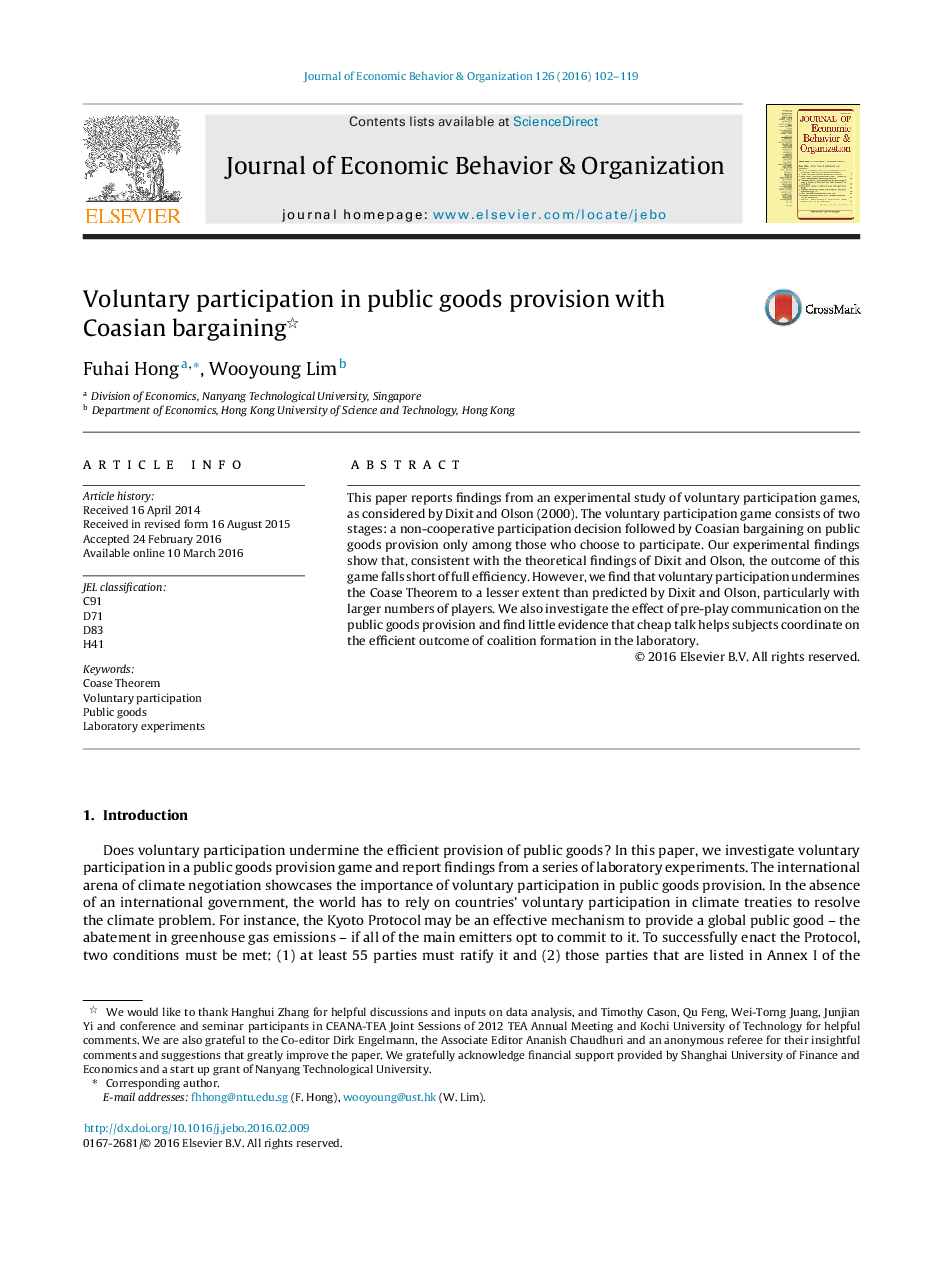| Article ID | Journal | Published Year | Pages | File Type |
|---|---|---|---|---|
| 883395 | Journal of Economic Behavior & Organization | 2016 | 18 Pages |
•We conduct experiments on public goods provision games with voluntary participation, based on Dixit and Olson (2000).•Voluntary participation undermines the Coase Theorem to a lesser extent than predicted by Dixit and Olson (2000).•A larger number of players have a better chance to successfully provide the public good, in contrast to the theoretical prediction.•Risk aversion and conditionally cooperative participants may explain the experimental findings.
This paper reports findings from an experimental study of voluntary participation games, as considered by Dixit and Olson (2000). The voluntary participation game consists of two stages: a non-cooperative participation decision followed by Coasian bargaining on public goods provision only among those who choose to participate. Our experimental findings show that, consistent with the theoretical findings of Dixit and Olson, the outcome of this game falls short of full efficiency. However, we find that voluntary participation undermines the Coase Theorem to a lesser extent than predicted by Dixit and Olson, particularly with larger numbers of players. We also investigate the effect of pre-play communication on the public goods provision and find little evidence that cheap talk helps subjects coordinate on the efficient outcome of coalition formation in the laboratory.
